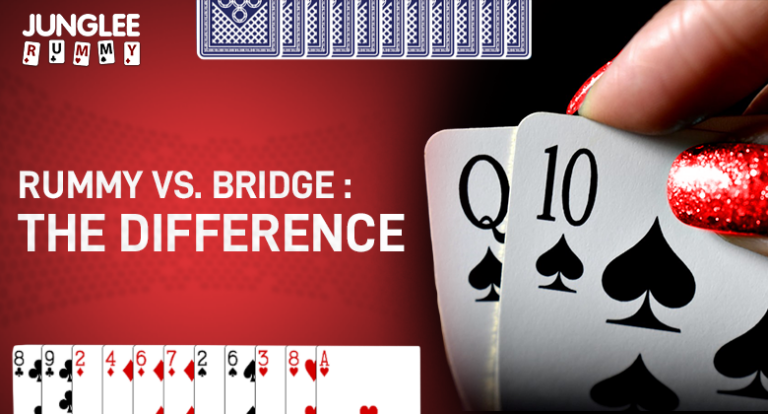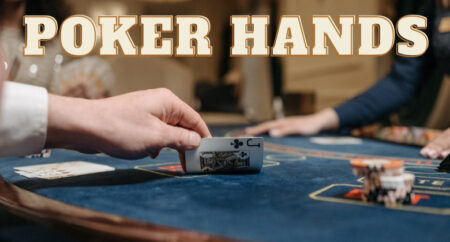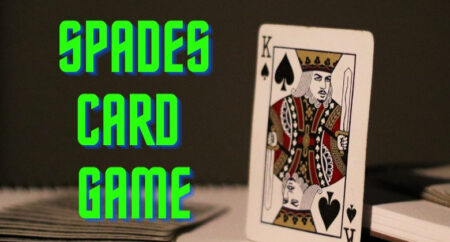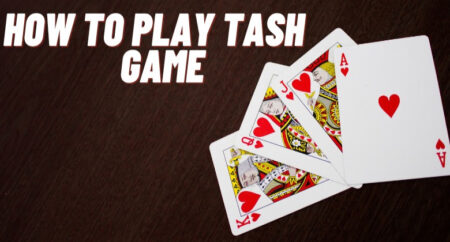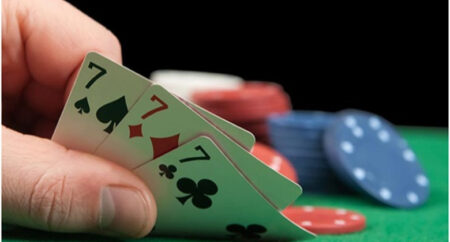Card games have a cultural significance across the Indian subcontinent. Nearly all of us grew up playing our favorite card games with family and friends almost everyday. Rummy and bridge are the top choices among card game lovers. Both these games are very entertaining and people enjoy playing them for stakes.
In recent years, online versions of rummy and bridge have surfaced on the internet. They are very popular among card game enthusiasts and offer amazing opportunities to win real money in prizes. However, most beginners are often confused between the two. The rummy game involves sorting and arranging of cards, whereas bridge is a trick-taking game. If you are not familiar with these games, here are a few points to help you differentiate between rummy and bridge:
- Origin
Rummy: Rummy is believed to be inspired by a Mexican card game called conquian. It is also inspired by a Chinese game called khanhoo.
Bridge: Bridge is very similar to triomfi, a French card game. Another theory explains that the British soldiers invented this game while serving in the Crimean War and named it after the Galata Bridge, which was used to reach a coffeehouse to play cards.
- Number of players
Rummy: Two to six players engage in a game of rummy.
Bridge: Four players play a game of bridge in two fixed partnerships.
- Number of card decks and the ranking of cards
Rummy: One or two standard card decks are used for playing a game of rummy. The cards are ranked from highest to lowest as follows:
A, K, Q, J, 10, 9, 8, 7, 6, 5, 4, 3, 2.
Bridge: One or two decks of 52 cards are used to play a game of bridge. The ranking of cards from highest to lowest is as follows:
A, K, Q, J, 10, 9, 8, 7, 6, 5, 4, 3, 2.
In bridge, the suits are also ranked from highest to lowest: spades, hearts, diamonds and clubs.
- Use of jokers
Rummy: Joker plays an important role in the 13-card game. It is used to replace any missing card required to complete a sequence or a set. There are two types of jokers in rummy: wild and printed jokers. A card is picked randomly at the beginning of the game to become the wild joker. For example, if 3♥ is picked at random to become the wild joker, all the 3s from different suits will be the wild jokers for that game. On the other hand, printed jokers are available directly in the card decks.
Bridge: Jokers are not used while playing bridge.
- Dealing
Rummy: In Indian rummy, the number of cards dealt to each player is 13. The remaining cards in the deck form the closed and open piles, which are kept at the center of the table. When the game begins, players draw cards from the open or closed piles and discard cards to the open pile.
Bridge: In contract bridge, 13 cards are dealt to each player, one card at a time. Usually two card decks are used, out of which one may be shuffled and other is dealt. The dealer transfers the shuffled deck to the player on his/her right, who cuts it into two packs of four cards.
- Objective
Rummy: The objective of rummy is to arrange 13 cards into required combinations such as sequences or sequences and sets and make a valid declaration.
Bridge: In a game of bridge, each pair of players attempts to score points by bidding or by beating the opposing pair’s bid. The pair with the highest score wins the game.
- Set-up
Rummy: In a game of rummy, two to six players are seated at a round table. The card decks are shuffled and the cards are dealt to each player. The remaining cards are kept at the center of the table, making up the open and closed piles, using which players either draw or discard cards.
Bridge: A game of bridge involves the following elements:
i) Bidding: As soon as the cards are dealt, players pick their cards and make a call. Making a call is nothing but passing, bidding, doubling or redoubling.
ii) Passing: If a player does not make a call i.e. if he/she does not wish to bid, double or redouble, he/she can pass the deal. Players make a pass by saying “pass” during the game. If all the four players do not make a call, a new deal is played.
iii) Bidding a suit: A player can win a bid if the number of tricks is greater than six and a suit that can become a trump suit. For example: A player can win a bid with spades as the trump suit by bidding seven tricks (6+1).
While making a bid, it can also be made with “no-trump,” which means there will be no trump suit in the deal. The lowest bid a player can make is 1 and the highest is 7.
The pair should bid a number greater than the last bid or an equal number in higher denomination. In bridge, no-trump is the highest denomination, which is even higher than spades. For example: Bidding two no-trump is required to overcall a bid of two hearts and a bid of four clubs overcalls three no-trump.
iv) Doubling and redoubling: A player can double the last-played bid made by his/her opponent. Similarly, a player can redouble the last-played bid if it was doubled by an opponent and made by their side. Both the doubled and redoubled bids can be overcalled by any bid.
v) Final bid and the declarer: If the calls made by a bidder are passed consecutively for three times, the bidding is closed. The last bid in the auction becomes the contract of the game. The player who bids the denomination in the contract becomes the “declarer.” The declarer’s partner is the “dummy” and the opponents become the “defenders.”
- Gameplay
Rummy: The players need to arrange their cards in different required combinations to make a valid declaration. These different combinations include sequences or sequences and sets.
A sequence is a group of three or four sequential cards of the same suit. There are two types of sequences: pure and impure sequences. The former involves no joker and the latter combination is completed using a joker card. At least two sequences are required to make a valid declaration, out of which one must be a pure sequence.
A set is a combination of three or four cards of the same rank but different suits. A joker can also be used to replace any missing card in a set. A maximum of two sets can be used to make a valid declaration.
When the game begins, each player draws a card from the open or closed pile and discards a card to the open pile at his/her turn. The cards are placed face-up in the discard pile and players can pick any card from this deck, except for a joker. The player who makes a valid declaration first wins the game. The players get zero points for a valid declaration and a penalty of 80 points for an invalid declaration.
Bridge: The player to the left of the declarer makes the first call and plays any card of his/her choice. After playing the first trick, the dummy’s cards are revealed to the other players. Dummy players attempt to arrange cards in suits and keep them in such a way that they are visible to the declarer. The trump suit should be placed to the dummy’s right.
The dummy has no role to play other than arranging the cards for the declarer. During a dummy’s turn, the declarer instructs him/her to play the card (only if it is legal in a game). The dummy is not allowed to offer any advice or comment on the move played by the declarer. When a dummy wins a trick, the declarer instructs him/her which card to play in the next trick. In order to make a call, the dummy can only play the lowest card.
The game is played in a clockwise direction. If possible, other players should play a card from the same suit as played by the leader. If a player has no card from the leading suit, he/she can play any other card. A trick consists of four cards and is won by the highest trump. If no trump is played, the highest card of the leading suit wins the trick. The winner of a trick gets to play the next trick too. The cards in each trick are collected and kept separately on the table. Players are allowed to see the cards and ask who played which card only after playing the subsequent tricks.
Rummy and bridge are entertaining card games and offer a healthy dose of entertainment to all the players. However, rummy requires skills and knowledge to win, while, while bridge involves an element of luck. If you know the rummy tips and tricks, there are high chances for you to win the game. On the other hand, bridge does not require you to use any skills to win and you can do so by fluke or chance.
If you are looking to play rummy online, you should try playing on Junglee Rummy. Choose from a variety of games, including free and cash contests and tournaments, where the prize pool is worth over lakhs and crores of rupees. Download now and get a welcome bonus up to ₹5250 on making your first deposit on the platform. Happy gaming!




